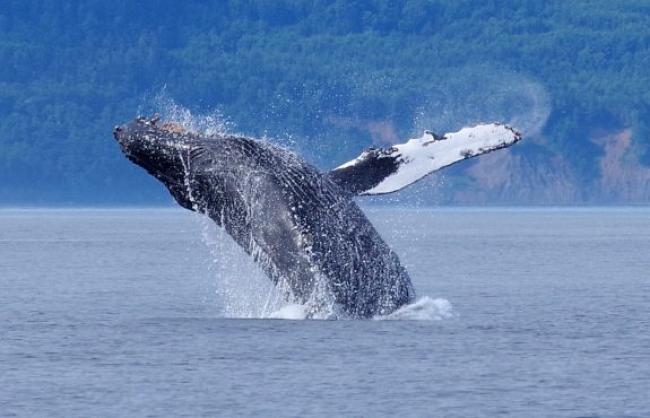Articles Menu

[Interesting. 5 min.]
Explore how whales change climate, engineer the ecosystem, create conditions that spawn plankton, and keep our oceans healthy in this beautiful story by George Monbiot.
watch https://www.youtube.com/watch?v=M18HxXve3CM.
TRANSCRIPT: One of the most exciting scientific findings of the past half century has been the discovery of widespread trophic cascades. A trophic cascade is an ecological process which starts at the top of the food chain and tumbles all the way down to the bottom. We all know that whales eat fish and krill and some people have argued that killing whales is good for human beings as it boosts the food available for us to eat - and so you would think. But as the great whales declined so did the numbers of fish and krill. It seems counterintuitive - surely their numbers would rise as their major predators disappeared - but it now turns out that whales not only eat these animals they also keep them alive. In fact, they help to sustain the entire living system of the ocean. Whales feed a depth in waters that are often pitch dark and then they return to the surface to the photic zone where there's enough light for photosynthesis to happen. There they release what biologists call fecal plumes - vast outpourings of poo - poonamis. These plumes are rich in iron and nitrogen - nutrients which are often very scarce in the surface waters and these nutrients fertilize plant plankton that lives in the only place where plants can survive - the photic zone. Fertilizing the surface waters isn't the only thing the whales do. By plunging up and down through the water column, they also keep kicking the plankton back up into the photic zone giving it more time to reproduce before it sinks into the abyss. Even today, the whale populations have been greatly reduced, the vertical mixing of water caused by movements of animals up and down through the column of the oceans is astonishingly roughly the same as the amount of mixing caused by all the world's wind and waves and tides. More plant plankton means more animal plankton on which a larger creatures then feed. In other words, more whales means more fish and krill. But the story doesn't end here because plant plankton not only feeds the animals of the sea, it also absorbs carbon dioxide from the atmosphere. When eventually it sinks to the ocean floor, it takes this carbon out of circulation down to a place where it remains for thousands of years. The more whales there are, the more plankton there is. The more plankton there is the more carbon is drawn out of the air. When whales were at their historic populations, before great numbers of them were killed, it seems that they might have been responsible for removing tens of millions of tons of carbon from the atmosphere every year. Whales change the climate. The return of the great whales if they're allowed to recover could be seen as a benign form of geoengineering. It could undo some of the damage we've done both to the living systems of the sea and to the atmosphere.
FAIR USE NOTICE: This video may contain copyrighted material. Such material is made available for educational purposes only. This constitutes a 'fair use' of any such copyrighted material as provided for in Title 17 U.S.C. section 106A-117 of the US Copyright Law.
Academic Sources:
Stephen Nicol et al, 2010. Southern Ocean iron fertilization by baleen whales and Antarctic krill. Fish and Fisheries, vol 11, pp 203–209.
Kakani Katija and John O. Dabiri, 2009. A viscosity-enhanced mechanism for biogenic ocean mixing. Nature, Vol. 460, pp 624-627. doi:10.1038/nature08207
Joe Roman and James J. McCarthy, 2010) The Whale Pump: Marine Mammals Enhance Primary Productivity in a Coastal Basin. PLoS ONE vol 5 no 10, pp 1-8. doi:10.1371/ journal.pone.0013255
Daniel G. Boyce, Marlon R. Lewis and Boris Worm, 2010. Global phytoplankton decline over the past century. Nature, Vol. 466, pp591-596. doi:10.1038/nature09268
Steve Nichol, 12th July 2011. Vital Giants: why living seas need whales. New Scientist, No.2820. http://www.newscientist.com/article/m...
Trish J. Lavery et al, 2010. Iron defecation by sperm whales stimulates carbon export in the Southern Ocean. Proceedings of the Royal Society: B. Vol 277, pp 3527-3531. doi: 10.1098/rspb.2010.0863
James A. Estes, et al, 2011. Trophic Downgrading of Planet Earth. Science, Vol 333, pp 301-306. doi: 10.1126/science.1205106